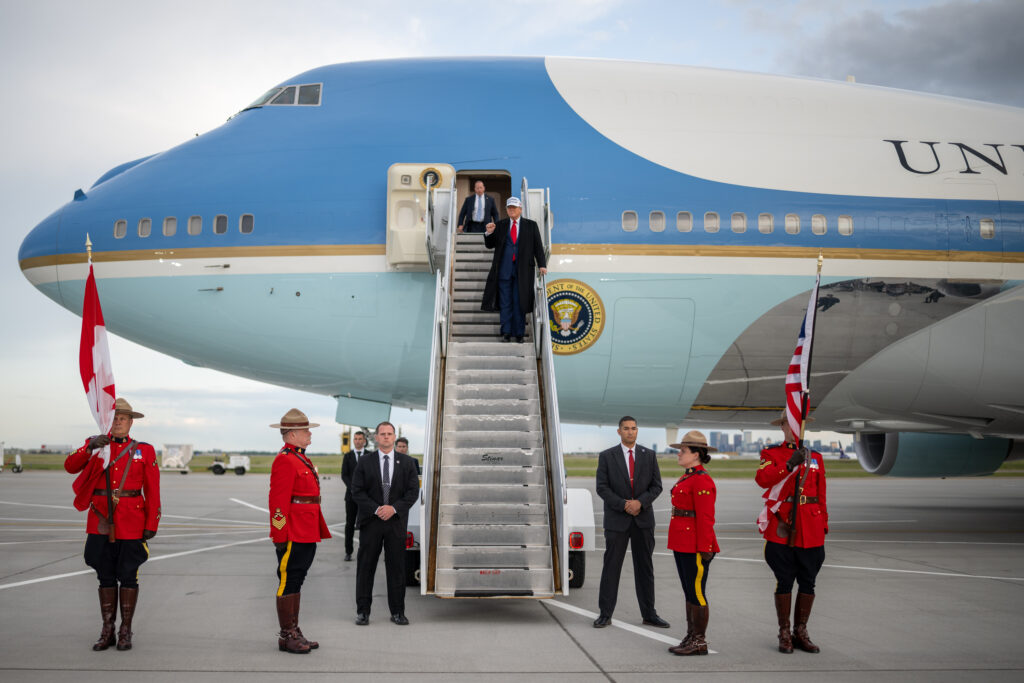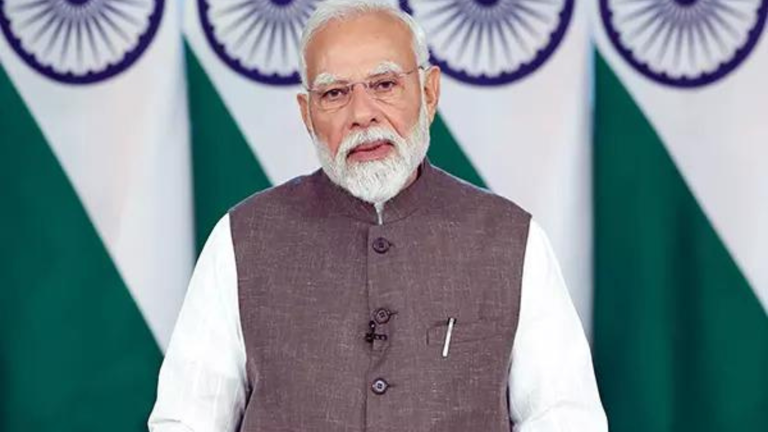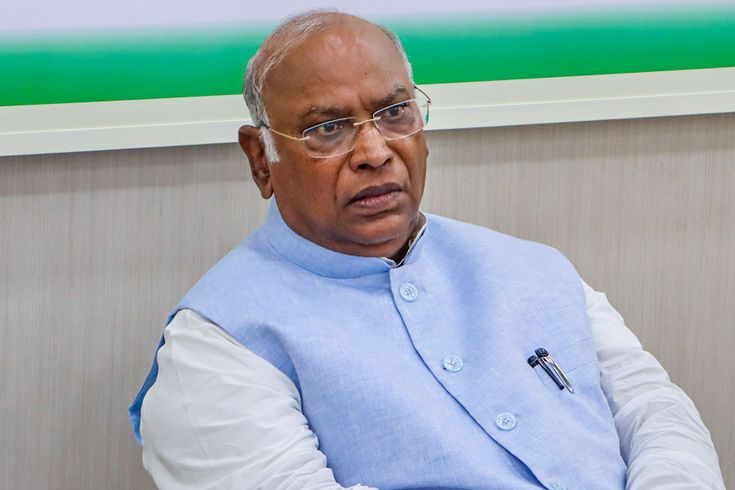Trump Abandons G7 As Israel-Iran War Spirals Toward Nuclear Showdown
As the war between Israel and Iran intensifies with unrelenting airstrikes and rising casualties, global diplomatic efforts are hanging by a thread. In a dramatic move, former U.S. President Donald Trump cut short his presence at the G7 Summit in Canada and rushed back to Washington, citing the escalating West Asia crisis. His early departure has sent shockwaves across diplomatic circles, hinting at possible U.S. intervention in what could soon spiral into a larger regional or even global conflict.
🚨Breaking: President @realDonald Trump is leaving the G7 Summit in Canada early, telling the National Security Council to be prepared in the Situation Room for his return. pic.twitter.com/nQNJhAtuqh
— Wonderful Life 🇺🇸💯🙏 (@Luckymagick) June 17, 2025
With a National Security Council (NSC) meeting convened immediately upon his return and stern warnings issued to Tehran, the signals from Washington are anything but routine. This article breaks down the strategic developments, Trump’s dramatic actions, and the looming shadow of nuclear escalation in the Iran-Israel war.
Trump Leaves G7 Summit Early as Israel-Iran War Escalates
The White House confirmed that Donald Trump departed the G7 Summit early after attending only a family photo session and dinner with world leaders. White House Press Secretary Kalen Levette stated that the early departure was prompted by the urgent need to address the escalating conflict between Iran and Israel, which by then had entered its fourth consecutive day of hostilities. However, in a separate statement, Trump denied that his departure was specifically due to the Israel-Iran war, even though his immediate call for a National Security Council (NSC) meeting and mounting tensions in West Asia suggested otherwise.
Trump’s decision to skip the concluding sessions and refuse to sign the G7’s joint statement — which emphasized de-escalation, Iran’s non-proliferation, and Israel’s right to defend itself — underscored Washington’s growing divergence from its allies. Instead, Trump issued a dramatic public warning to Tehran’s civilians to “evacuate immediately,” further heightening fears of U.S. military involvement.
At the heart of this urgency is the fear that the regional skirmish could quickly morph into a full-scale war, especially if Iran’s underground nuclear facilities come under Israeli or U.S. attack. The timing of Trump’s move — coupled with the NSC meeting and reports of possible U.S. military mobilization — signals that Washington is preparing for every possibility, regardless of official denials.
Israel Strikes Iranian Nuclear Sites as Tehran Seeks Backchannel Talks
According to military analyst Professor Peter Knik, Israel’s latest airstrikes on Iran have damaged above-ground sites like Natanz and Isfahan. However, deeply buried nuclear facilities such as Fordo remain untouched — and likely untouchable — by Israeli capabilities alone. Knik emphasized that only the U.S. possesses the 30,000-pound bunker-buster bombs required to destroy such reinforced underground installations.
Reports also surfaced that Iran is actively reaching out to Arab allies and intermediaries — especially those with normalized relations with Israel — offering willingness to negotiate with both Tel Aviv and Washington. Iran’s Foreign Minister Abbos Arachi even suggested that a single phone call from Washington could halt Israeli strikes.
Yet, while Iran appears open to dialogue, Israel seems determined to dismantle any path toward diplomacy. The assassination of Iranian negotiator Shim Khani and fears of more targeted killings hint at efforts to deliberately sabotage peace talks. Israel’s Prime Minister Netanyahu continues to sell the idea of Iran’s nuclear threat as an existential crisis, rallying both domestic and international support.
U.S. Faces Dilemma: Military Action or Diplomatic De-escalation?
While the world watches anxiously, Trump and the U.S. military face a serious dilemma: whether to enter a war that could spiral into a nuclear catastrophe. The risk isn’t just theoretical. Experts like Peter Knik warn that if Israel fails to fully neutralize Iran’s nuclear capabilities, it might resort to using its own nuclear weapons — an unprecedented escalation with irreversible global consequences.
Even more troubling is Knik’s concern over a false flag attack, where Israel might stage a strike on U.S. assets and blame it on Iran — a tactic to force American military involvement. Trump had earlier stated that any Iranian attack on U.S. assets would trigger retaliation. This makes the situation extremely volatile.
Meanwhile, Defense Secretary Pete Hexit maintains that the U.S. is open to talks, but the window for diplomacy appears to be narrowing fast. With ongoing Israeli airstrikes and retaliatory Iranian missiles landing across Tel Aviv, Haifa, and other cities, the region teeters on the edge of a broader war.
Trump’s early G7 exit, the high-stakes NSC meeting, and simultaneous military and diplomatic movements have turned the Israel-Iran war into a global crisis. Whether the U.S. chooses de-escalation or military engagement could determine not just the fate of West Asia but also the future of nuclear diplomacy.
If diplomatic overtures are sabotaged, and if Israel chooses to pursue extreme responses, the world could be on the brink of a crisis with energy markets, regional alliances, and global peace hanging in the balance. One thing is clear: what happens in Tehran and Tel Aviv now concerns not just the Middle East — but the world.





















